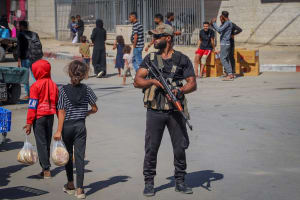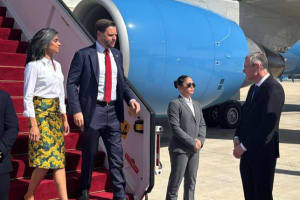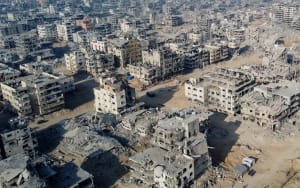IDF warns it is unprepared for future prolonged wars without urgent boost to military budget

Israeli military officials are warning that the IDF is unprepared for new protracted wars unless it urgently receives increased budgets to meet the nation's current and future security challenges. The Israeli military warned that it faces stockpile gaps and industry shortfalls following two years of intense war on several fronts since the Hamas Oct. 7 terror attack.
“We need to move to the force-building stage – acquiring high-end systems, smart bombs, air defense interceptors. The enemy’s missiles may cost $400,000, but each Arrow 3 interceptor costs $3 million and takes months to produce,” an Israeli military official stated.
Despite U.S. President Donald Trump’s recent declaration that the Gaza war is over, the IDF is preparing for future potential wars in the combustible Middle East.
“Peace has not broken out. Iran is a wounded adversary undergoing rapid recovery, the Gaza ceasefire is fragile, Lebanon sees daily attacks, Turkey is eyeing Syria, the eastern border is exposed and the West Bank is simmering,” one senior Israeli official warned.
“We are facing a fundamental shift in the Middle East. The added funds we received are far from sufficient. The lessons of October 7 are not only about that night – they reflect years of strategic misjudgment. We must never return to that mindset,” senior IDF commanders said.
Because reservists make up the bulk of the IDF’s limited manpower, the Israeli military is traditionally geared towards quick and limited conflicts. Before the latest war with Iran and its regional terrorist proxies, IDF officials were preparing for a scenario with a war lasting for one month to six weeks. Furthermore, Israeli military strategists expected the Hezbollah terror group in the north near Lebanon to be the main front.
Instead, the war dragged on for two years, with Hamas in Gaza emerging as the primary battlefield. As a result, the IDF’s stockpiles were not prepared for such a prolonged and multifront conflict.
Israeli officials previously embraced a “small and smart army,” with a focus on technology and less manpower. This concept was seriously challenged, however, by the Oct. 7 attack and the protracted multifront war against Iran, Hamas, Hezbollah, the Houthis and other Iranian-backed militias.
In June 2024, then-IDF Chief of Staff Lt-Col. Herzi Halevi called for an expanded IDF with more soldiers to meet the complex security challenges.
"The IDF needs more fighters," Halevi said while visiting the ultra-Orthodox Netzah Yehuda Battalion.
Israel partly addressed the stockpile gaps during the war by receiving massive military deliveries with ammunition and equipment from the United States. However, even the significant military equipment delivered on more than 900 cargo aircraft and 150 supply ships from mainly the United States was reportedly insufficient to meet the Israeli military’s war needs amid the longest war in Israel’s modern history.
Israeli military officials warn that political leaders are repeating the same mistakes made before October 7 by delaying the transfer of urgently needed funds to rebuild the army’s strength and prepare for future wars.
Israel has already earmarked NIS 100 billion ($30 billion) for the 2026 military budget, but critics warn that more investment is needed. While Israel degraded the Iranian-led military regional proxies over the past two years, it still poses a significant threat to Israel's security.
Israeli officials are also concerned about Turkey’s growing influence in the Middle East and especially in Syria, which shares borders with both Turkey and Israel. As a NATO member state, Turkey has one of the largest and most modern military forces in the Middle East.
Israel and Turkey previously held close commercial and military ties. However, bilateral relations between the two nations have been significantly strained under the current Turkish Islamist-oriented President Recep Tayyip Erdoğan.

The All Israel News Staff is a team of journalists in Israel.
You might also like to read this:

















